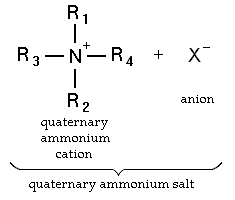This week’s, our research highlights include examinations of the effect of quats on reproduction and a potential link between lead exposure and obesity.
SOT Member Research
 A class of disinfectants known as quaternary ammonium compounds (quats) has recently been shown to affect reproduction in mice. As reported by Environmental Health News, Washington State University, and Virginia-Maryland Regional College of Veterinary Medicine researchers, including Haritha Potineni, found that breeding mice exposed to quats took longer to become pregnant, had fewer pups per litter, and fewer overall pregnancies.
A class of disinfectants known as quaternary ammonium compounds (quats) has recently been shown to affect reproduction in mice. As reported by Environmental Health News, Washington State University, and Virginia-Maryland Regional College of Veterinary Medicine researchers, including Haritha Potineni, found that breeding mice exposed to quats took longer to become pregnant, had fewer pups per litter, and fewer overall pregnancies.
Bringing together 120 participants from 12 countries, 15 government institutions, 20 universities, 2 non-governmental organizations, and 12 corporations, the Health and Environmental Sciences Institute (HESI)-coordinated Risk Assessment in the 21st Century (RISK21) project aims to improve human health risk assessment. The steering committee for RISK21, on which 9 Society of Toxicology (SOT) members serve, just had three papers published in Critical Reviews in Toxicology, including a roadmap for 21st century human health risk assessment. Of particular note is the recommendation to start with exposure assessments instead of toxicity ones and then using the two together to create a clearer picture of human safety and risk.
There is a lot of scientific research linking lead to brain and developmental issues, but could the metal also be connected to another major health problem? Christopher Faulk and Dana C. Dolinoy have found that the offspring of pregnant mice exposed to lead have increased levels of body fat. In the PLOS ONE paper, the researchers also found evidence of a potential impact on insulin levels in the male offspring.
Science News
To stay abreast of these types of items throughout the week, be sure you “like” SOT on Facebook and “follow” SOT on Twitter.
Have news or research you want featured in the future? Send me an email.